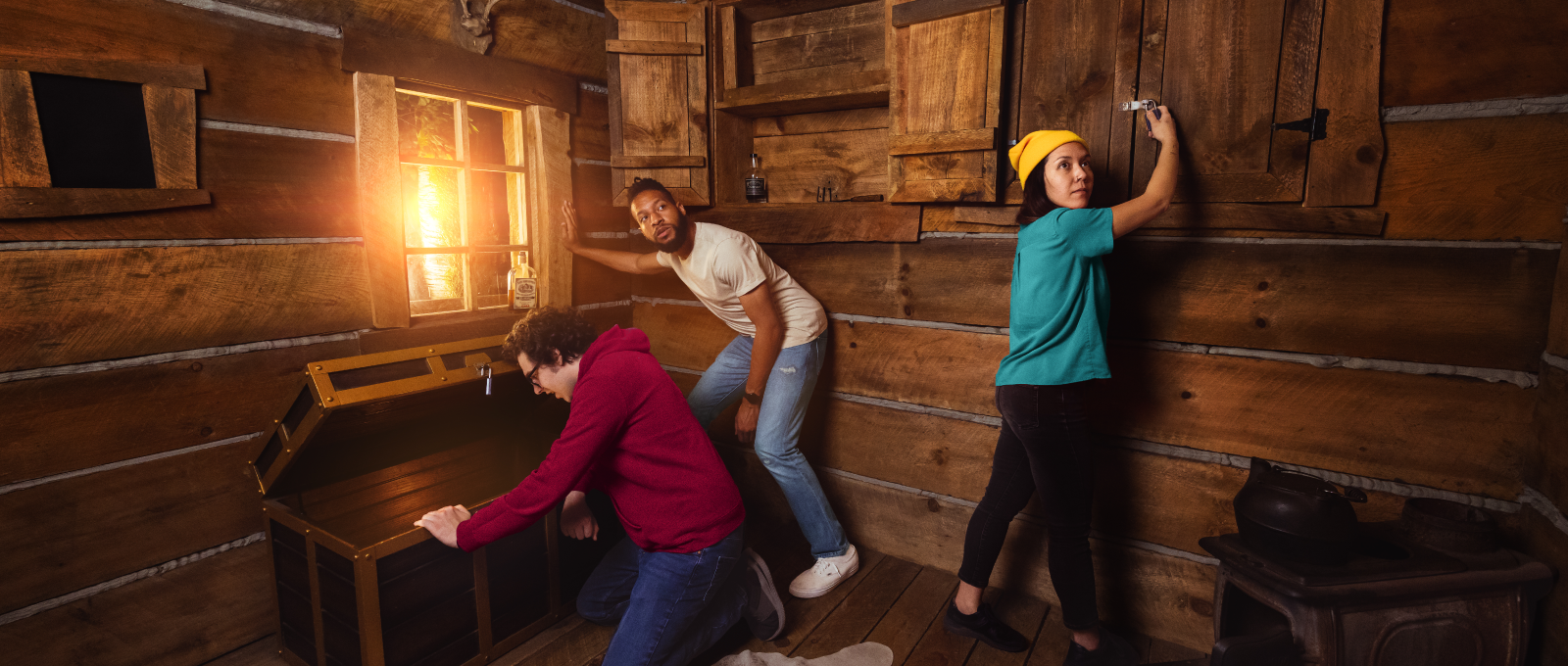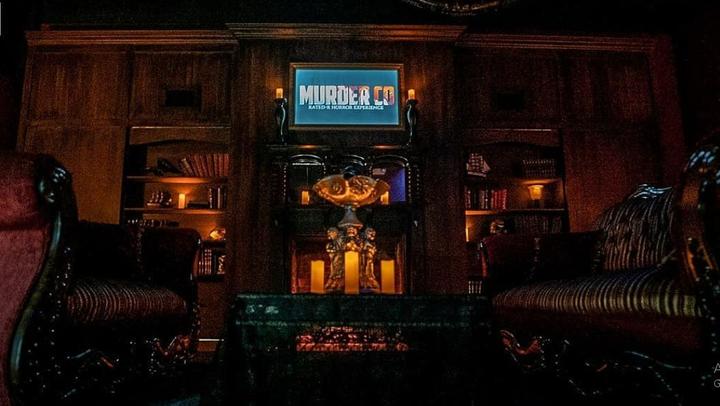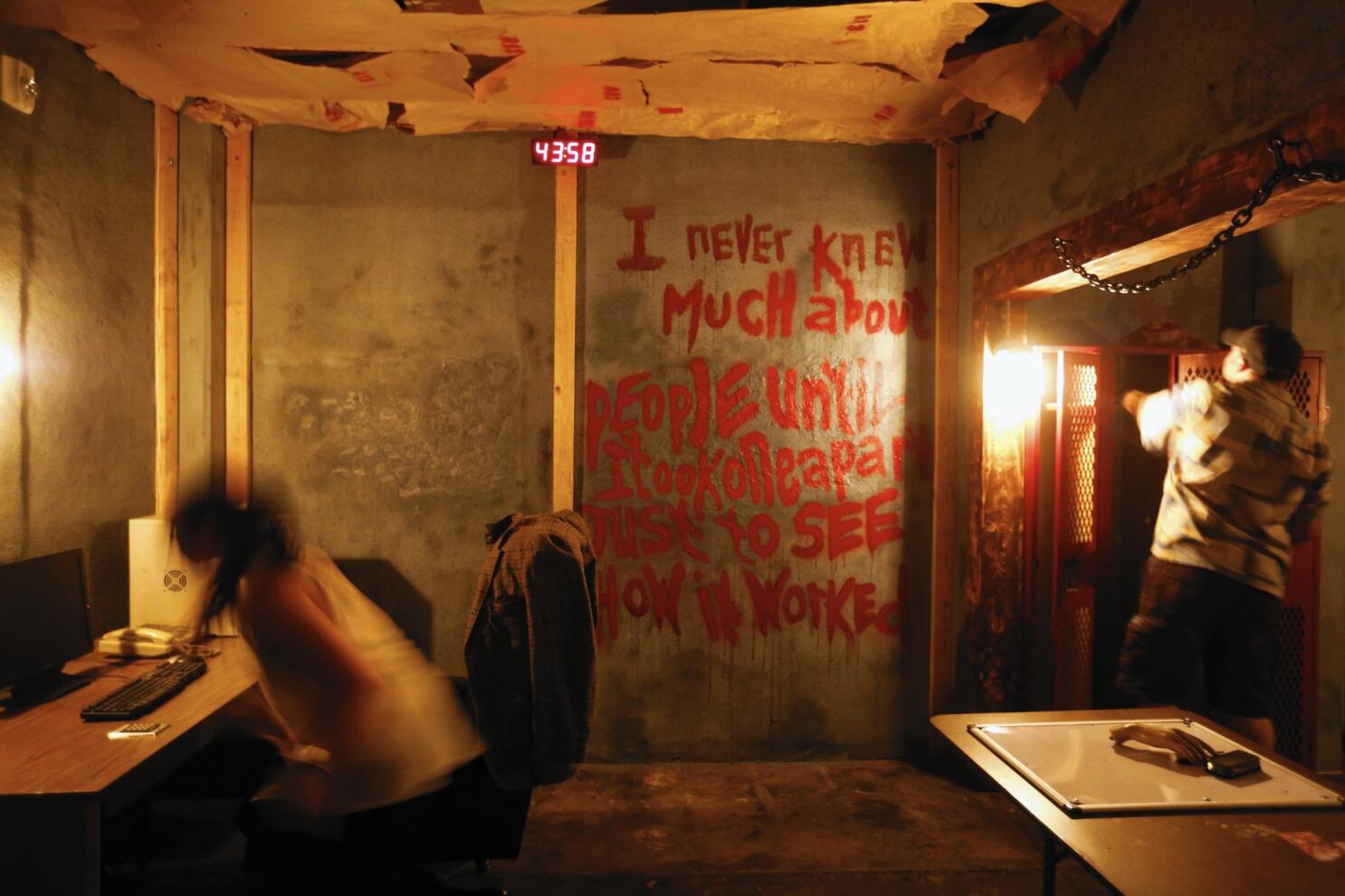Group Approaches: Just How to Collaborate Effectively in an Escape Area
Teams must actively listen to each member's insights, assign roles that line up with individual toughness, and keep routine check-ins to ensure emphasis and avoid redundancy. By fostering a setting that values cohesion and flexibility, teams can considerably enhance their effectiveness and success rates.
Establish Clear Interaction

To help with clear interaction, it is vital to assign a central point of get in touch with for info circulation. Short, focused updates from each team participant can maintain the group informed without overwhelming them with details.

Designate Duties Purposefully
While clear communication establishes the foundation for efficient synergy, assigning functions tactically makes certain that each staff member's staminas are used properly. In a getaway room situation, the time-sensitive and complicated nature of difficulties requires a well-organized strategy to job delegation. By recognizing and leveraging private proficiencies, groups can enhance their problem-solving abilities and improve total efficiency.
First, analyze the unique abilities and characteristics of each participant. Somebody with an eager eye for information could succeed in discovering covert items, while a sensible thinker could be better suited to addressing challenges. It's equally important to have a leader who can supervise development, handle the timeline, and make definitive phone calls when necessary. This duty usually needs solid organizational and interpersonal abilities.
Second, make sure that roles are adaptable and versatile. As brand-new difficulties arise, the team should have the ability to pivot, reallocating tasks as required. This flexibility assists maintain energy and protects against traffic jams that could take place due to stiff role tasks.
Inevitably, a critical method to duty job not only makes the most of the toughness of each employee but likewise fosters a natural atmosphere, driving the group towards a successful escape.
Utilize Diverse Skills
Acknowledging and utilizing the varied abilities within your team can dramatically raise your efficiency in a retreat space. Each staff member brings one-of-a-kind toughness to the table, and successfully leveraging these capacities can speed his explanation up problem-solving and improve total effectiveness. A team participant with solid logical skills may excel at deciphering complex codes or patterns, while an additional with keen observational capabilities may swiftly identify hidden hints that others might forget.
Encourage team about his participants to articulate their insights and ideas immediately, guaranteeing that all potential solutions are considered. Additionally, assigning jobs that straighten with each member's staminas can stop bottlenecks and make certain that progress is continual.
Additionally, variety in abilities often translates to diversity in believing designs, which is indispensable in an escape area setup. While some obstacles might require rational reasoning and precision, others might gain from creative and lateral reasoning. By identifying and leveraging this variety, groups can attend to a broader series of difficulties better, therefore enhancing their possibilities of an effective escape.
Manage Time Successfully

First, allocate first mins for a fast study of the area. Recognize noticeable challenges and divide jobs based upon employee' strengths, ensuring that nobody is still. Establish inner time checkpoints to evaluate progress periodically; as an example, goal to have half the puzzles addressed by the mid-point of the game. This technique can assist keep the team focused and avoid time from escaping unnoticed.
Furthermore, avoid one-track mind. If a challenge is taking also long, turn team members or go on to another obstacle, returning later with fresh perspectives. Communication is vital-- maintain everyone updated on solved problems and continuing to be jobs to prevent redundant initiatives.
Finally, utilize any like it hints or hints moderately yet strategically - best escape room. Understanding when to request aid can conserve beneficial time. By sticking to these time administration principles, groups can considerably enhance their chances of a successful and satisfying getaway space experience
Debrief and Show
Reflection is an important element of group development and enhancement in the context of getaway areas. Once the difficulty is completed, whether successfully or not, it is crucial for the group to engage in an organized debriefing session. This procedure permits team members to evaluate their performance, recognize toughness, and pinpoint locations for enhancement.
Start the debrief by reviewing what worked out. Highlight details instances of efficient interaction, analytic, and partnership. Acknowledging these favorable actions enhances them and urges their repeating in future challenges.
Next, deal with the challenges experienced. Go over minutes of confusion, miscommunication, or inefficient approaches. Motivate an open and constructive dialogue where team participants can share their perspectives without concern of criticism. This fosters a culture of continual enhancement and understanding.
Final Thought
To conclude, successful cooperation in a retreat space is asserted upon clear interaction, strategic role assignments, the efficient use of varied skills, and competent time management. Normal check-ins and organized debriefings are essential for maintaining focus and promoting constant improvement. By developing a cohesive and flexible team atmosphere, the probability of effectively fixing problems and accomplishing the goal of running away the space is significantly enhanced. This approach not only ensures success but additionally promotes collective development and understanding.